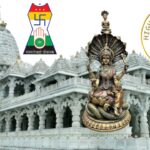This article is written by Atishay Jain, a former UPSC aspirant and a core member of the ApniLaw team. With a deep interest in public welfare laws and senior citizen rights, the article presents clear and practical insights on complex legal provisions like the Maintenance and Welfare of Parents and Senior Citizens Act. For any personal queries or suggestions, feel free to reach out to us through our official channel.
What Is Section 23 Of the Senior Citizen Act?
- If a senior citizen gifts or transfers property after this Act’s commencement, it must include a condition. The transferee must provide basic amenities and physical needs to the senior citizen. If the transferee fails or refuses to fulfill this condition, the transfer is considered done through fraud, coercion, or undue influence.
- The senior citizen can approach the Tribunal to declare the transfer void.
If a senior citizen has a right to maintenance from an estate, this right remains valid even if the estate is transferred. The right can be enforced against the transferee if they had notice of the right or if the transfer was made without consideration. However, this right does not apply against a buyer who paid for the estate without knowing about the maintenance obligation. - If a senior citizen cannot enforce these rights, any recognized organization (as per Section 5 Explanation) can take legal action on their behalf.
What Is The Bombay High Court Ruling On Rights of Senior Citizens in Property Gift Deed Dispute?
- In a landmark ruling, the Bombay High Court reaffirmed senior citizens’ rights in property disputes. The case of Nitin Rajendra Gupta vs Deputy Collector, Mumbai & Others focused on the cancellation of gift deeds executed by a father in favor of one son.
- The Maintenance Tribunal had earlier set aside these gift deeds under Section 23(1) of the Maintenance and Welfare of Parents and Senior Citizens Act, 2007.
The father, a widower, had transferred his share in multiple Mumbai flats to one of his three sons, the Petitioner. However, he was left homeless and had to live with another son in Surat. - Despite multiple properties, the father had no income and had even lost access to shares, mutual funds, and jewelry. The Tribunal, on October 31, 2022, annulled gift deeds dated June 21, 2019, and September 25, 2020. It also ordered the son and his family to vacate two flats in Kandivali, Mumbai.
- On April 10, Justice S.V. Marne held that Section 23(1) of the Act is not meant to nullify valid gift deeds. This section allows a tribunal to cancel a gift deed if the transferee fails to provide basic amenities and needs to the elderly donor. The key issue was whether these deeds implied such an obligation.
- The Court emphasized the Act’s purpose, to protect elderly citizens and ensure they get basic care. However, it also warned against misuse of Section 23(1) to settle family property disputes. The Court noted that many senior citizens might not explicitly include conditions in gift deeds. Thus, making their protection dependent on legal drafting.
- The Court criticized using the law to cancel legitimate transfers between family members. It directed the Petitioner to allow his father residence in one of the flats and pay Rs. 25,000 per month as maintenance.
The Legal Support Present For Incapable Senior Citizens Under the Senior Citizens Act, 2007
The Maintenance and Welfare of Parents and Senior Citizens Act, 2007, provides robust mechanisms to protect the rights and welfare of senior citizens, especially those who are physically or mentally incapable of enforcing their rights.
- Authorized Representatives Can Act on Behalf of Senior Citizens. Under Section 5(1)(b) of the Act, if a senior citizen is incapable of making an application for maintenance, any other person or a registered voluntary organization authorized by the senior citizen can apply on their behalf.
- Tribunals Can Initiate Suo Motu Proceedings. The Maintenance Tribunal has the authority to take cognizance of a matter on its own (suo motu). If it believes that a senior citizen is being neglected or is unable to act.
- Legal Representation Permitted in Tribunals. The Act initially restricted legal representation in Maintenance Tribunals. The Kerala High Court declared this bar unconstitutional, allowing advocates to represent parties in these proceedings.
- Enforcement of Property Rights and Eviction Orders. The Act empowers Maintenance Tribunals to protect the property rights of senior citizens. If a transferee fails to provide care as agreed, the Tribunal can declare such transfers void and order eviction to restore the senior citizen’s rights.
Conclusion
The Maintenance and Welfare of Parents and Senior Citizens Act, 2007, ensures that senior citizens who are incapable of enforcing their rights are not left without support. Through authorized representatives, proactive tribunals, and legal avenues, the Act provides comprehensive protection for the elderly.








